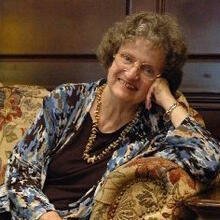Principles That Work
Catholics have always relied on church teaching for an understanding of marriage, expressed perhaps in papal encyclicals and theological studies. But A Daring Promise is different from these. It is both intellectual and spiritual, offering a treatment of married spirituality that is in rather short supply. This book enunciates principles, but it often does so through storytelling and anecdote. The author is opinionated. He seems fearless in contradicting certain kinds of received wisdom. He is relying on a sure knowledge of Catholic teaching and a depth of personal experience.
Richard Gaillardetz is the Thomas and Margaret Murray and James J. Bacik professor of Catholic Studies at the University of Toledo. He is married. He and his wife, Diana (also a religious professional), are the parents of four boys. From the first page it is clear that their home life has been demanding—he speaks of an early time in their marriage when their twins were only two months old. The need for a marital spirituality arose out of the tensions and demands of married life, he explains.
At the outset Gaillardetz mentions four basic doctrinal commitments that he sees contributing to a spirituality of marriage: “(1) at the core of our humanity is the experience of desire, an inner drive for communion with God and one another; (2) the incarnation reveals to us the fulfillment of that desire and of our very humanity in the person of Jesus Christ; (3) the suffering, death, and resurrection of Jesus, often called ‘the paschal mystery,’ offers us the way of salvation and the paradoxical logic of authentic human fulfillment; (4) the true wisdom of the Christian doctrine of the Trinity is that God is communion and therefore is discovered wherever and whenever we give ourselves over to the life of communion.” The author insists upon these four points, even though they may seem “formal and abstract,” as necessary to an authentic marital spirituality. There is a clear purpose and structure at work here. Yet for me, what makes this book so valuable is the author’s willingness to critique much of what is usually said in devout Catholic circles about marriage.
“Too often,” Gaillardetz writes, “accounts of marital spirituality present God as the transcendent ‘third party’ in the marriage relationship.” To illustrate his dissatisfaction with this commonly voiced idea, the author begins with “something of a personal confession.” He explains that he and his wife have never quite succeeded in sustaining a pattern of joint prayer in their marriage. He attributes this, partly, to a different formation. She is a convert to Catholicism and he is not.
This seeming irregularity in their ways of prayer has led Gaillardetz to question the “third party” notion of God’s participation in their marriage. “I am convinced that the God of the Christian faith is not an intellectual super-being. Our God is not an individual anything but the very ground and source of our existence who sustains us and abides in us when we engage in what I have called the life of communion.”
The author insists that couples must be free to experience God in their different ways, not obliged to adopt a common style of prayer. “Whether couples cultivate this awareness together, in their own moments of solitude, or in the celebration of the liturgy of the church, what is important is that they find ways to affirm and sustain their awareness of God’s abiding presence....”
The most striking chapter is “Marriage and Conversion.” Though I have been deeply interested in conversion and life-choices, I do not think I have seen a more refreshing treatment of the subject. Far from offering a sentimental or romantic view of marriage, Gaillardetz portrays matrimony as a deep personal challenge, one that is both a covenant and a radically countercultural undertaking. It is in this chapter, I think, that he reveals why he sees marriage as “a daring promise.”
Meant to be used by discussion groups, this book offers useful questions at the end of each chapter. The epilogue offers no discussion guide. Here, I think, Gaillardetz touches most deeply on the mystery of things. He speaks of how he and his family, about to leave Texas and move to Ohio, are sorting through their belongings. They come across what they call their “resurrection plant,” a plant that has traveled with them through many years of marriage. This simple, humorous touch provides a glimpse of the everydayness of marriage, as well as a depth of meaning that often lies below our most ordinary moments.
He goes on to reflect (recalling a retreat in which they and other couples took part) on the difficulties that have assailed many marriages—personal losses, alcoholism and substance abuse, multiple affairs. He speaks, with a certain vulnerability, about the temptations against fidelity that all married people face. He comes back again to prayer and spiritual development as vital components in Christian marriage.
A Daring Promise teaches effectively by rooting principles in practice.
This article also appeared in print, under the headline “Principles That Work,” in the September 9, 2002, issue.








